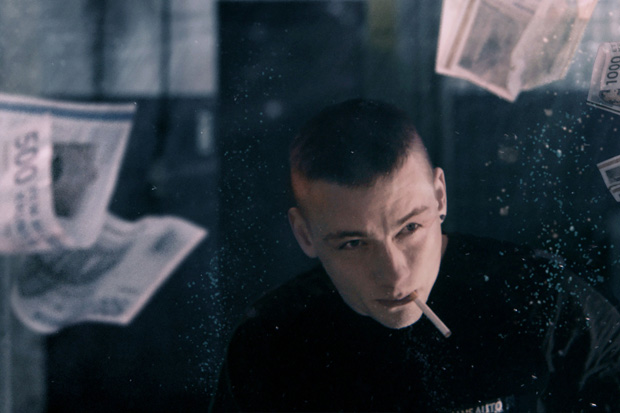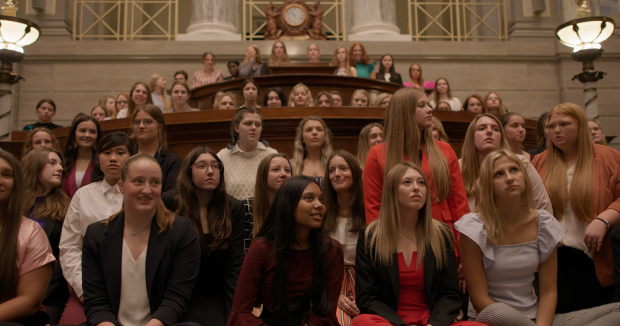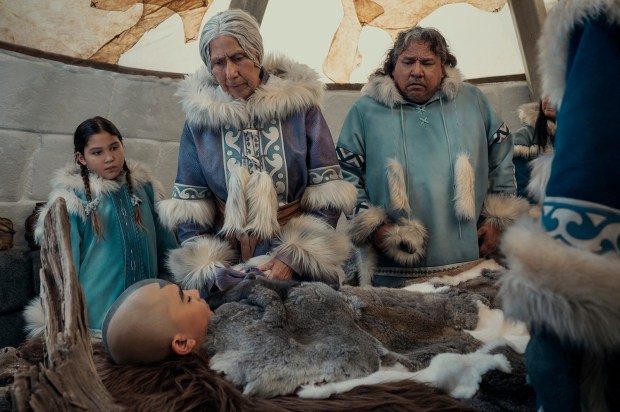‘We have a problem. Yes. At the wind farm.’ Any conspiracy thriller with lines like that has definitely got my vote. Possibly most of you are unaware of this, because it’s not something I talk about often, but I happen to be not too fond of the things I call bat-chomping, bird-slicing eco-crucifixes — nor of the charlatans, crooks, liars and parasites who make their living out of them.
Indeed, whenever I try to think of an industry that’s worse than wind farms I keep coming unstuck. At least landmines serve a useful purpose for force protection; at least Albanian prostitutes make a few men very happy. Wind, on the other hand, is a business entirely dependent on junk science, compulsory government levies and crony capitalist favouritism which produces nothing of real value. It is intrinsically corrupt and therefore prone to exactly the kind of greed and skulduggery we see in the latest Scandi crime series, Follow the Money (BBC4, Saturday).
One of the vows I made after my recent brush with death was to spend more time playing video games and watching TV. But what I’m finding is that even when you treble your screen time, it’s still not enough to keep pace with all the good stuff that’s out there. I haven’t seen Happy Valley yet, which I know I must. Nor, despite a heroic effort, have I got further than the middle of season four of The Walking Dead. And of course as soon as the new season of Thrones starts we’re going to be really stuffed. It is quite clear what is to blame for all this: globalisation.
When all the foreign TV you had to catch up with was American, it was just about manageable. But now that the French have started making good stuff (Spiral; Les Revenants — the first series, anyway) — and the Germans (Deutschland 83); and the Swedes and the Danes (Borgen; The Killing; The Bridge; Wallander); and even the Icelanders (Trapped) — there just aren’t enough hours in the evening to keep abreast of everything.
This means you have to be quite ruthless. For example, after two episodes, I am thinking of ditching Occupied, the Norwegian series with which I’ve been catching up on Sky Arts. It has an interesting premise: Norway has a keen green prime minister who — to combat climate change — decides to go all out for thorium and close down his country’s oil fields. Unfortunately, this doesn’t go down well with the Russkies who, in alliance with the European Union, occupy Norway and force it to bring its oil production back on stream. Cue much nationalistic resentment, tension and brinkmanship.
What I’m finding, though, so far, is the implausible but potentially thrilling geopolitical backdrop is being somewhat wasted on what’s too often a cosy domestic drama (Will she/won’t she keep her restaurant open? How often will he volunteer to do the dishes?) combined with the sort of anally retentive political intrigue that explains why I never watched Borgen or the West Wing. Tell me if I’m wrong, though: if there’s some heavy Spetsnaz action to come and if all kicks off militarily in future episodes, then I’m in.
Follow the Money (finally…), on the other hand, is showing great promise from the off. There’s a decent range of characters with whom to sympathise and identify — led by Thomas Bo Larsen as the gritty cop Mads (you’ll have seen him in Festen and The Hunt), but also ranging from a semi-reformed young car thief to a sassy female lawyer at the wind business (gloriously called Energreen) who may already have got herself in too deep by intriguing with the boss who I’m sure is evil because he rides to meetings in his suit on a smug racing bike.
A thing you have to beware of with Scandi dramas, unfortunately, is their immensely tedious lefty-liberal politics. The Stieg Larssen books (The Girl with the Dragon Tattoo, etc.), for example, are all but undone by the maddening interludes where he recites bleeding-heart junk statisticoids about how 200 per cent of all women in Sweden are raped at least twice a week. (Yep, Stieg my late chum, Sweden does indeed have a massive sexual violence problem. But it comes from a very specific quarter of the male population.) Even with lesser offenders like Occupied, you do feel slightly like you’re being given a treatise on the importance of racial and sexual equality.
The first series of The Bridge cleverly got round this by having a heroine with a disability (PC brownie points!) which few male viewers, at least, would consider a disability at all, viz: being an incredibly sexy blonde woman who occasionally shags random men at the drop of a hat because she’s a teeny bit Asperger’s and behaves more like a man.
I don’t mind the lefty-liberal element in Follow the Money — making you care about the outrageous exploitation of immigrant workers. Possibly I would if it were the oil industry. But where greenies are the bad guys: not a problem.
Got something to add? Join the discussion and comment below.
Get 10 issues for just $10
Subscribe to The Spectator Australia today for the next 10 magazine issues, plus full online access, for just $10.
You might disagree with half of it, but you’ll enjoy reading all of it. Try your first month for free, then just $2 a week for the remainder of your first year.















Comments
Don't miss out
Join the conversation with other Spectator Australia readers. Subscribe to leave a comment.
SUBSCRIBEAlready a subscriber? Log in